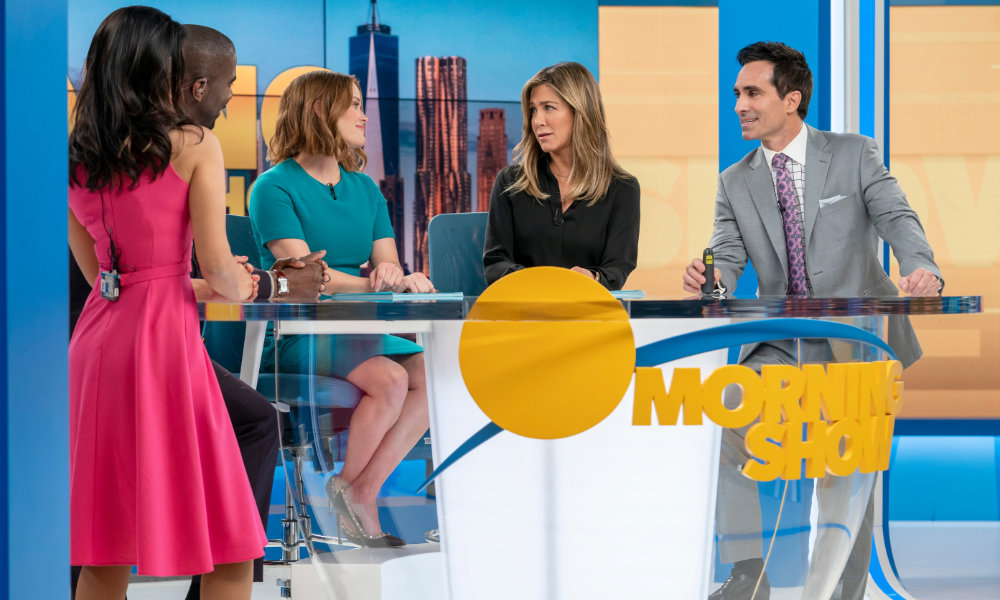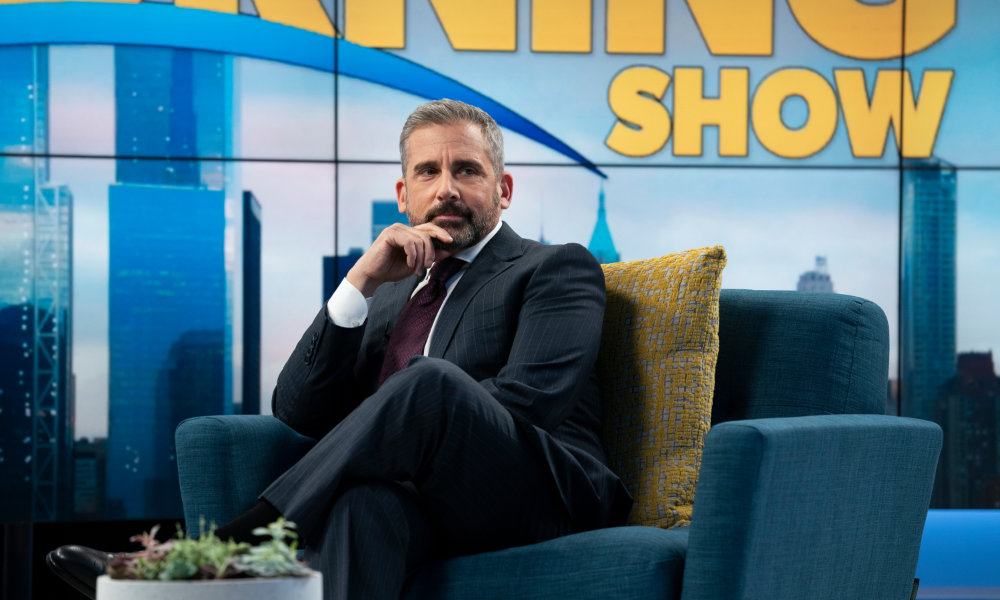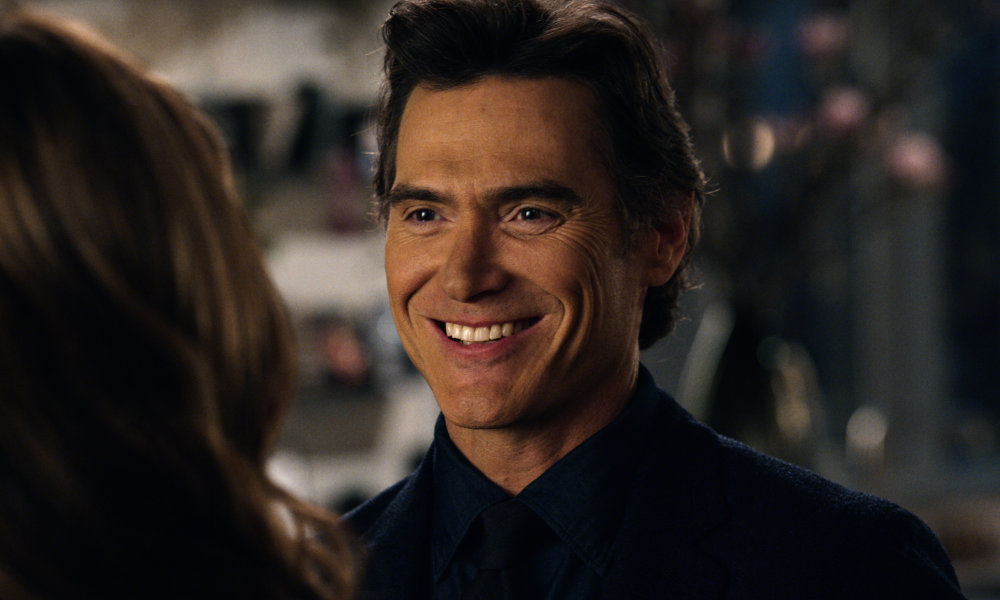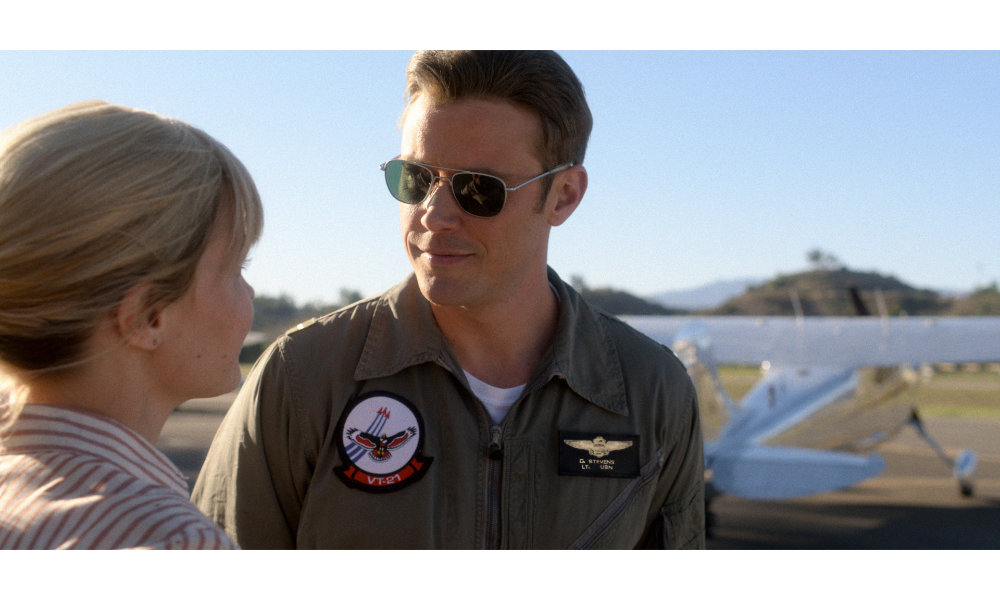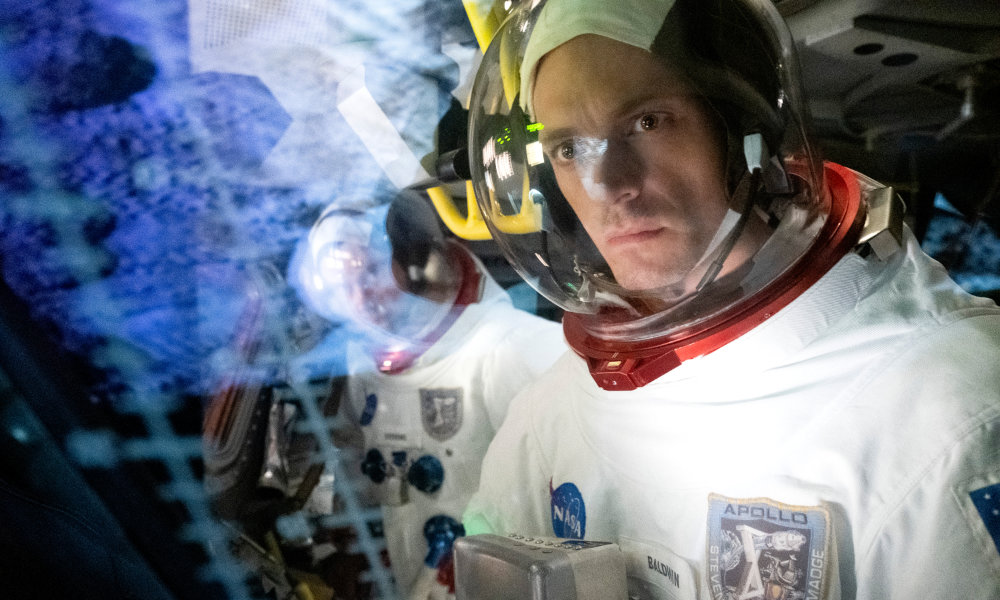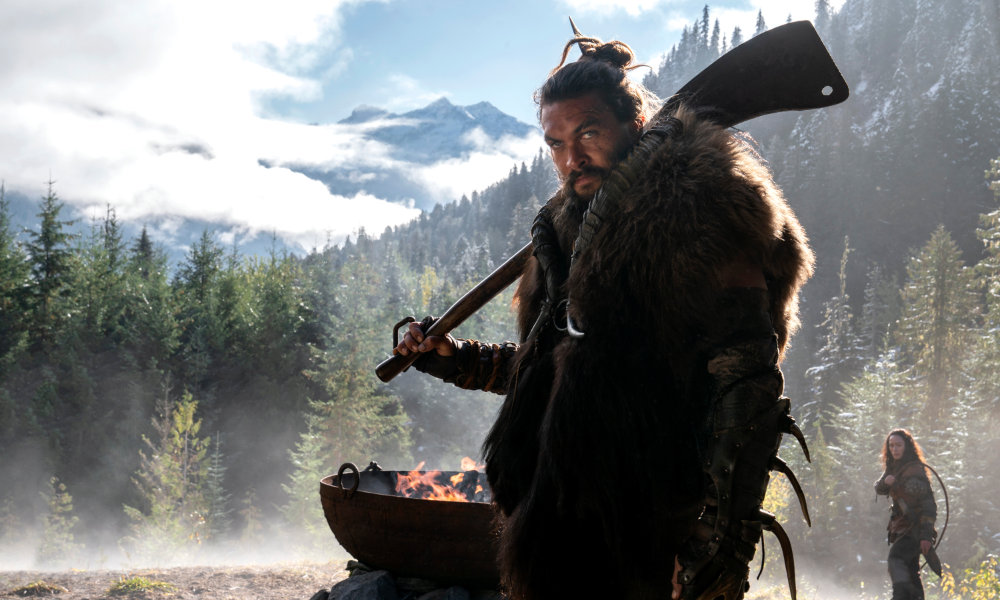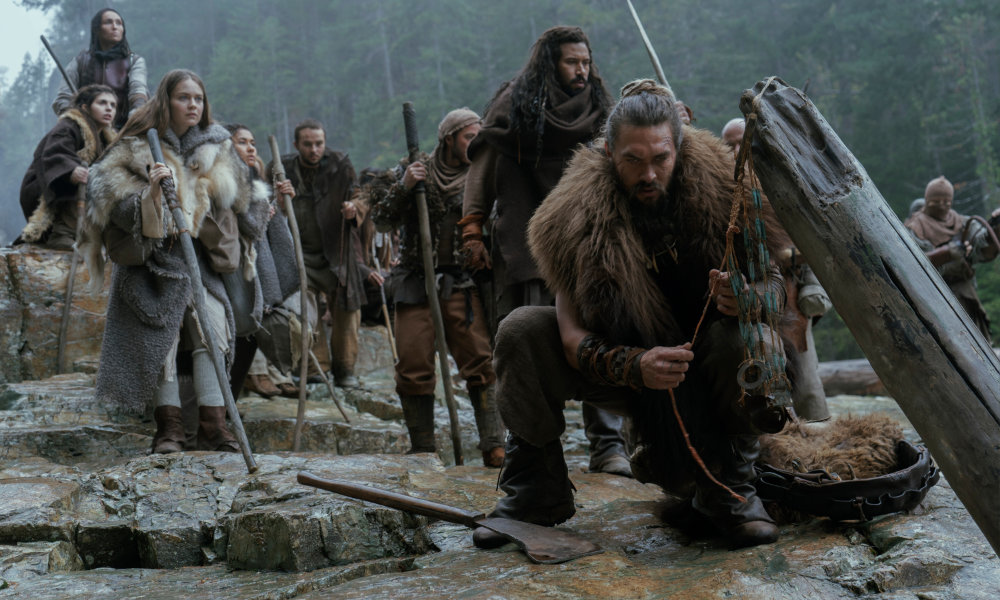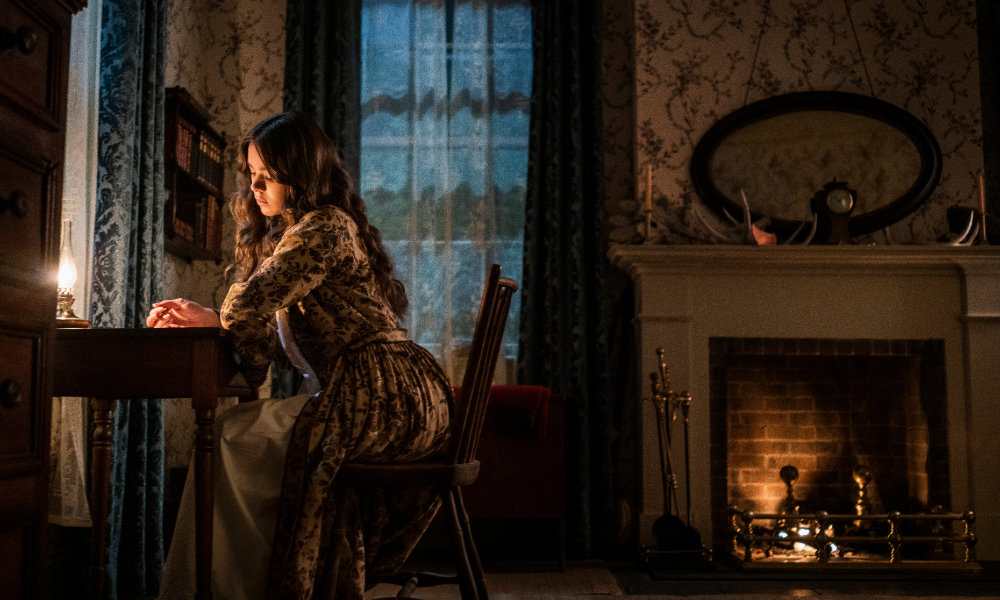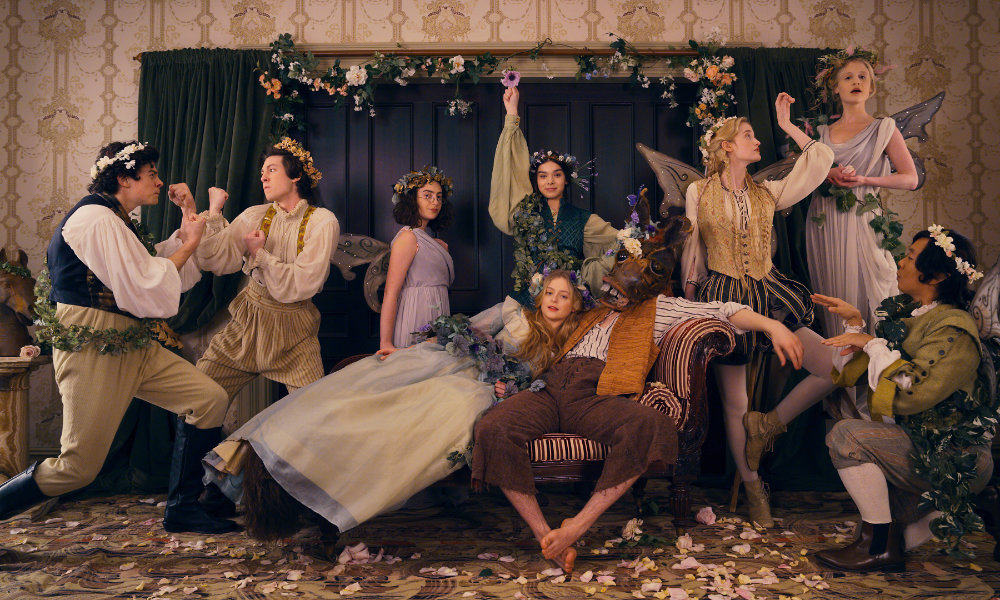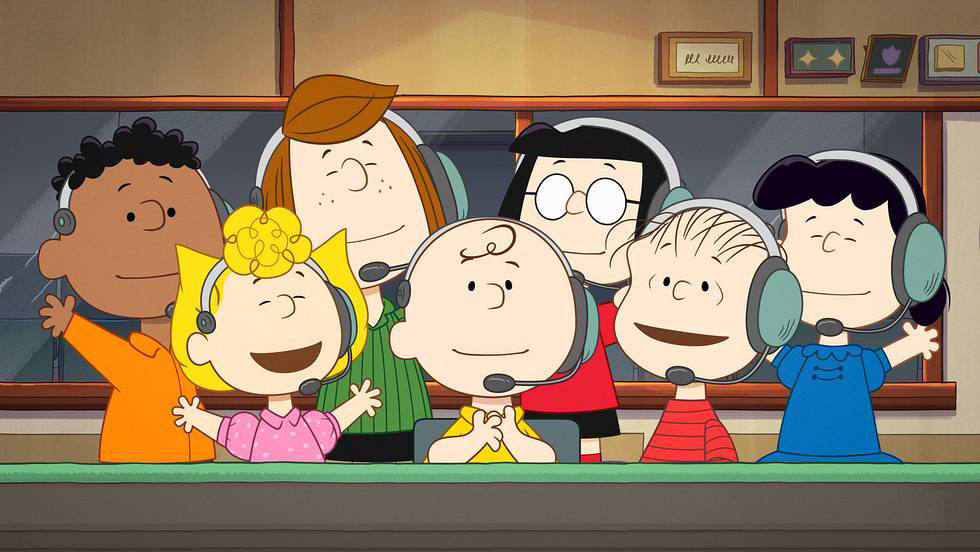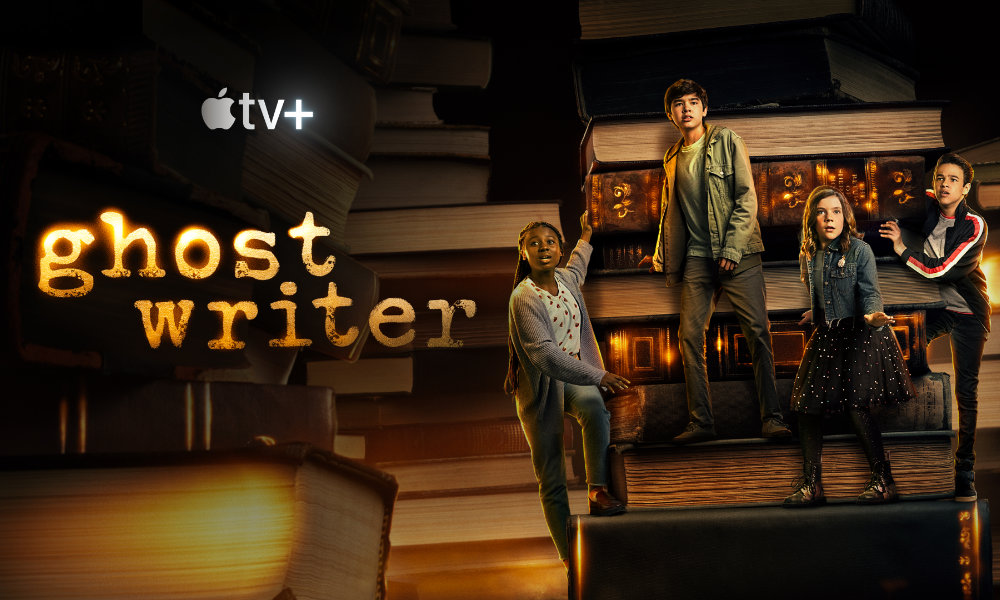7 Shows That Absolutely Make Apple TV+ Worth the Free Trial
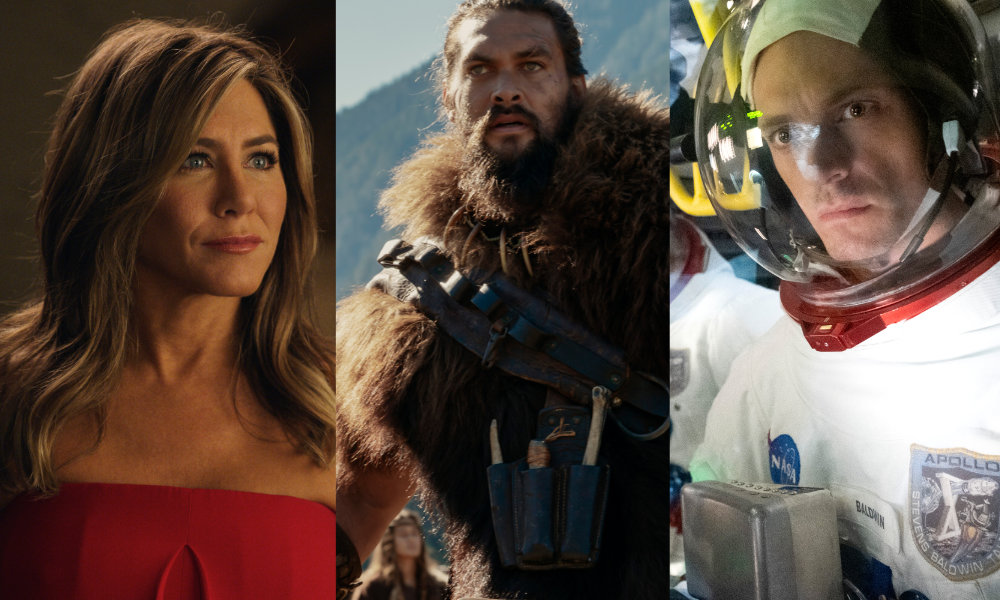 Credit: Apple
Credit: Apple
Toggle Dark Mode
It’s been less than a month since Apple TV+ launched, and all of Apple’s debut shows are now on a roll. By all reports, Apple has been thrilled with the initial uptake, with millions of viewers checking out the new lineup of shows during the launch weekend, no doubt thanks to Apple’s offer of a free year of service to those who purchased a new Apple device that could be used to watch it.
However, if you weren’t eligible for the free one-year subscription and have been on the fence about jumping in, now is a great time to check it out.
While Apple’s headline shows only debuted with the first three episodes, by the end of this week they’ll be more than half-way through, with episode six expected to arrive for each of The Morning Show, For All Mankind, and See come this Friday, and of course the holiday season is a great opportunity to binge-watch your favourites, and there’s a seven-day free trial during which you can watch everything that’s already available — but don’t be surprised if Apple’s shows leave you wanting to stay on for more.
The Morning Show
Led by Jennifer Anniston and Reese Witherspoon, who are both starring and executive producing, The Morning Show is considered by many to be the crown jewel of Apple’s new lineup of original shows, if for no other reason than for the amount of attention it’s received both from Apple and from the entertainment press.
Of course, The Morning Show was the first major project we heard about from Apple, with the news breaking over two years ago that Aniston and Witherspoon had agreed to sign on with Apple’s worldwide video group for a then as-yet-unnamed morning drama.
Unfortunately, while the initial episodes of the series debuted to mixed reviews — many critics unceremoniously panned it, while a lot of ordinary viewers loved it — there’s a good possibility that expectations were simply way too high. This was, after all, a show that brought Jennifer Aniston back to television after 15 years on the big screen, and marked Witherspoon’s first ever role in a regular TV series (in fact, it’s also amusing to note that one of Witherspoon’s relatively few TV guest appearances was actually in the role of Aniston’s character’s sister in Friends). It’s also the series that vaulted Aniston and Witherspoon to the place of highest-paid TV stars in Hollywood history, while also bringing in other significant talent like Steve Carell to co-star.
As if that wasn’t a high enough bar to set, The Morning Show was also a serious drama being led by actors who had traditionally done lighter fare like romantic comedies, and it’s possible that many didn’t fully appreciate exactly how serious it was going to be — this isn’t even close to anything like Friends or Legally Blonde or The Office.
So if you’re expecting a lighthearted romp through life at a major television studio, The Morning Show will not be what you’re looking for, but in broader terms it doesn’t disappoint. For those who find appeal in slightly darker dramas that are more layered and nuanced, we think The Morning Show is all of that and more. Unless you’ve been living under a rock, you know that it’s based on the “Me Too” movement, with the core theme being revelations of sexual misconduct by a previously beloved celebrity and how it affects the lives of everybody involved.
However, what’s great about The Morning Show is that it manages to pull this off without being at all preachy or heavy-handed, or even pretending that it has any answers at all. This isn’t a show that’s trying to make any specific points about the issue, but instead simply shining a light on how it actually impacts those people who are in the middle of it. The sense from the very beginning is that a nuclear bomb has just been dropped into the lives of these people, and none of them have any idea quite how to react. They’re lost and dazed and confused, and you can feel it from the very first frames.
There’s a mix of complicated interpersonal relationships here, since the guy that everybody knew and respected for 15 years, Mitch Kessler (Steve Carell) is now considered a “sexual predator.” However, Kessler is not simply a one-dimensional evil bogeyman here; while he’s certainly the egocentric TV personality you’d expect, he’s also genuinely bewildered at exactly what he’s done wrong, and Carell skilfully expresses this in his portrayal of Kessler in a very believable and human way. In fact, there’s a great scene where Kessler is speaking with an old film director colleague who has been down a similar road (well played by Martin Short) and things suddenly start dawning on him.
Aniston also does a great job as Alex Levy, Kessler’s former co-anchor who has been abandoned as a result of her partner’s sins, and is trying to project an image of being in control in public while actually falling apart at the seams in private, and Witherspoon as Bradley Jackson, the firebrand West Virginian reporter who suddenly finds herself thrust into the co-anchor’s chair and has to navigate a whole new world of media politics.
However, the real breakout star here may very well be Billy Crudup as Cory Ellison, the network president who seems to have a mysterious plan of some kind, but also appears to love the chaos of the entire situation, frequently sitting back with an enigmatic grin whenever things otherwise seem to be blowing up around him. You never quite know what he’s thinking, but at the same time never lose the sense that he’s actually very much in control, even while Rome is burning.
Almost all of them are fairly shallow people, to be clear, but The Morning Show demonstrates that even shallow people can be complicated, and even if we don’t actually like some of them, the writing and acting has us sympathizing with all of them on various levels, in the very least as much as it makes us wonder how we’d respond if we ever found ourselves in these situations.
The Morning Show does take a little bit of time to find its footing, as there’s a lot of exposition to set the stage. You may not find yourself compelled to hit the “Play next” button after the first episode, but the stakes definitely ramp up by the end of the second, and by the time the third episode ran its course, we found that we were eagerly looking forward to episode four to arrive the following Friday.
For All Mankind
While For All Mankind doesn’t have the big-name stars of The Morning Show, it does boast the legendary Ronald D. Moore behind it — the man known for Battlestar Galactica, of course, but also for his work in crafting some of the more interesting Star Trek storylines. This was a series that really excited some of us, and while some early reviews described it as “Mad Men at NASA,” that’s probably doing the show a disservice, since there’s a lot more going on here, and most of the similarity to Mad Men begins and ends simply at the fact that it’s set in the late 1960s.
If anything, For All Mankind feels like it has a lot more in common with the highly-acclaimed 1983 movie The Right Stuff, and anybody who saw and enjoyed that movie will probably find that an Apple TV+ subscription is worth it for this show alone.
If you’re reading this, we’re going to assume you already know the backstory of For All Mankind, since it’s been very well-advertised — in a nutshell, the Russians win the space race by landing a man on the moon first. What’s brilliant about For All Mankind, however, is that even knowing that this is how things turn out, the first five minutes of the first episode still had us on the edge of our seats, as it builds up to the reveal of the first moon landing while keeping the audience in the dark. It’s challenging enough to create a good sense of suspense and drama in any TV show, but to do so for an audience who already knows what’s going to happen takes real craftsmanship.
It doesn’t end there either, of course, since a rewritten history means that anything can change, and every assumption is thrown on its ear. The Soviet landing happens right after the Apollo 10 fly-by moon mission, raising the question of whether the otherwise-planned Apollo 11 mission will even happen, much less the ones after that, and in some ways it feels like there’s more at stake now than there was in the original timeline, since American pride is even more on the line. By the end of the very first episode it’s clear that everything has changed.
It’s a solid show that left us wanting more in the first ten minutes, and we’re glad to hear it’s already been renewed for a second season. In fact, Ron Moore has apparently already mapped out seven seasons’ worth of episodes, covering a timeline from 1969 right up to the present, and with his meticulous world-building skills we’re hoping to see this one run for a while.
See
If The Morning Show surprised us by taking lighter actors and throwing them into a serious drama, See does exactly the opposite by following a much more standard formula. From Ronan Dex on Stargate: Atlantis to Khal Drogo in Game of Thrones, Jason Momoa is best known for playing a badass warrior, and his role in See is exactly what you’d expect. Even the character’s name, Baba Voss, sounds like exactly the kind of name we’d associate with Momoa.
So when it comes to See, what you see is what you get (no pun intended). Set in a dystopian future, the show leans more toward a Lord of the Rings or Game of Thrones style fantasy world, complete with warrior tribes, its own mythology, and even an evil queen (creepily but captivatingly played by Sylvia Hoeks). In fact, were it not for the one big twist, See probably wouldn’t be anything more than yet another medieval-future-fantasy-style action/adventure series — entertaining, but not particularly special in its own right.
The twist, however, and what makes the show especially unique and interesting to watch, is the fact that See posits a world where everybody is blind. Not just suddenly blind, but blind from birth, and blind from generations. Thanks to a virus which also decimated the human race, it’s been several hundred years since anybody had sight, and what little of humanity that remains has adapted and adjusted to the fact that they can’t see. In fact, the race has been without sight for so long that the very idea that humans should be able to see is taken as a myth by most, and even heresy by some. Most believe that things like tools and weapons were handed down by “the gods” rather than being built and left behind by their sighted human ancestors. Still, it’s fair to say we probably won’t be seeing any Apple product placement in this one.
Of course, like many fantasy and sci-fi shows, this requires a bit of a willing suspension of disbelief, but no more than trying to understand how the universal translator works in Star Trek. The assumption here is that after hundreds of years without sight, the human race has both adapted and evolved to deal with it. We’re never given too many specifics about how they’ve managed to construct living spaces and tools and weapons without sight, but this is fine — too much exposition usually ruins things. At the same time, watching the fight scenes and remembering that these warriors are supposed to be blind adds a whole new level of fascination to the show that just wouldn’t be there otherwise.
Dickinson
While all of Apple’s other flagship shows are pretty serious, Dickinson is Apple’s attempt at much more lighthearted fare. It’s a comedy — albeit a slightly dark one — that puts Hailee Steinfeld in the role of the famous yet reclusive poet Emily Dickinson in the early years of her life.
It appears Dickinson is slightly more targeted at young adults, but the magic of it is that it doesn’t try to be a show for teenagers, but rather merely a show about teenagers. However, unlike many shows set in the 19th century, Dickinson weaves modern linguistic styles and attitudes into the period, making Emily herself seem even more out of place as she struggles to break out of the restrictive world around her, from a mother (Jane Krakowski) who assumes that she should be a quiet and dutiful future wife for any number of suitors, to the father (Toby Huss) who clearly adores her but fears her breaking out of her traditional female role and scandalizing the family by doing things like attending university lectures or publishing her poems.
What’s perhaps most fascinating about Dickinson is that Emily and her contemporaries could just as easily fit into a modern story. The circumstances may be different, but the attitudes and personalities are just as typical of modern teens. It’s a fun show, and unlike Apple’s other new shows, the company has made the whole first season available from the outset for binge-watching.
Snoopy in Space
One of three shows targeted at kids, Snoopy in Space sort of joins For All Mankind by sending everybody’s favourite beagle to NASA. As Peanuts fans, my ten-year-old daughter and I enjoyed watching this one together, and she gave it five stars and expressed disappointment when she found out there were only 12 short episodes to get through (although that hasn’t stopped her from rewatching them by herself on her iPad).
Snoopy in Space is designed to be a bit more educational than most prior Peanuts cartoons, but it manages to avoid being heavy-handed about it, sparingly interspersing real-world space facts where appropriate, but not really detracting from the Peanuts characters, which for the most part are the same old gang that you’ve known and loved for years, although Franklin comes out as a space and engineering nerd rather than the blander background character that he’s been for years, but as the title notes, the real star of the story is Snoopy, who manages to stumble his way into an assignment as an astronaut.
Ghostwriter
Those in their thirties may remember the original Ghostwriter kids TV mystery series from the 1990s, which was a joint project by the Children’s Television Workshop (now Sesame Workshop), and BBC Television to teach literacy skills to elementary school children. It was a popular kids series at the time, which told the story of a group of friends who solved local mysteries with the help of an invisible ghost who would communicate with them by manipulating text found on posters, papers, and in books.
Thanks to Apple’s partnership with Sesame Workshop, it’s not a big surprise that it’s chosen to reboot this series, setting it in a haunted bookstore this time, and shifting some of the focus away from basic literacy skills over more to literary appreciation. In this case, fictional figures spawn from books found in the bookstore owned by the grandfather of one of the main characters. The first episode begins with the white rabbit from Alice in Wonderland, causing the only four kids who can actually see these characters to become unlikely allies in trying to solve the mysteries of why they’re appearing, and figure out what the ghost of the bookstore is actually trying to tell them.
There are only seven episodes in the initial run, which are divided into two- and three-parters that continue the tale of each specific book across multiple episodes. While the series begins a bit awkwardly, it picks up its stride by about episode three or four, and by the end of the run my ten-year-old daughter was left wanting more.
But There’s More Coming
Apple is releasing episodes of The Morning Show, For All Mankind, and See on a weekly basis. The first three episodes of each came out when the service launched on November 1, and the last episodes of the first season of each will be available by the middle of December; See only has an eight-episode run, while The Morning Show and For All Mankind are each going for ten.
So you could technically wait until late December to sign up for the one-week free trial of Apple TV+ and then just binge-watch all of the shows once they’re available, but there’s a good chance you’ll want to stick around because there’s a lot more coming. Apple has already announced that Servant, a thriller by M. Night Shyamalan, will debut on Nov. 28, and Octavia Spencer’s crime drama Truth Be Told is coming on Dec. 6. These will almost certainly run into January, and then Apple will undoubtedly have even more new shows in the new year to keep you coming back for more.
So there’s really no better time to dive in to Apple TV+ than right now, especially if you’re already eligible for the one-year free trial, and if you’ve been considering the purchase of a new iPhone, iPad, iPod touch, Apple TV, or Mac for Black Friday, you can still get a one-year subscription to Apple TV+, which in effect gives you an extra $60 discount on top of the already great deals you’ll undoubtedly be able to find.

